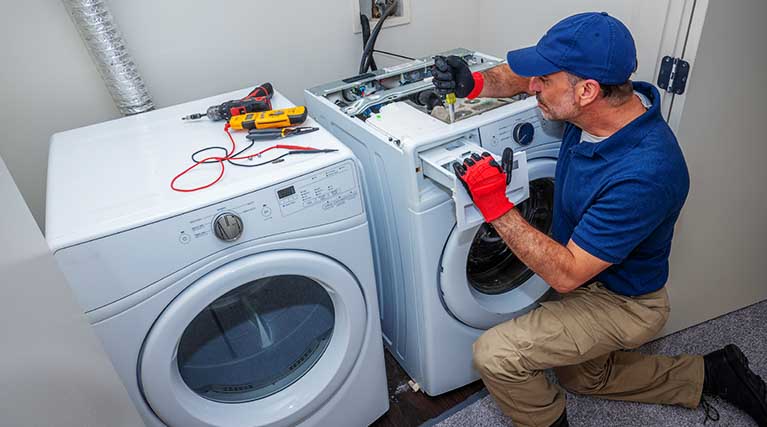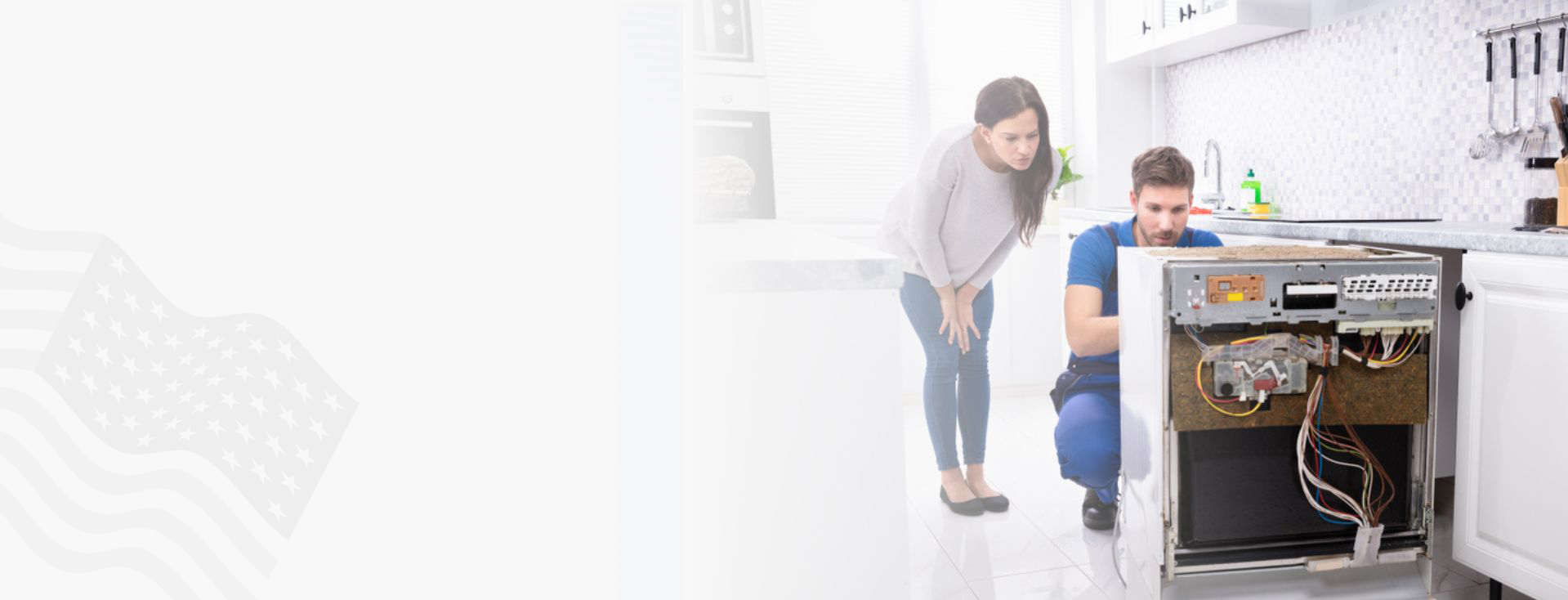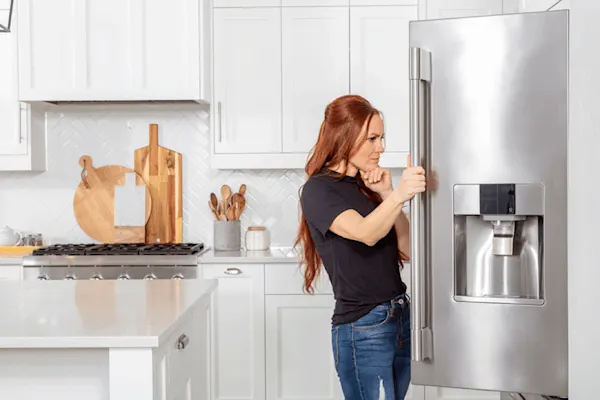The Ultimate Guide to Comprehending Appliance Repair Work in your home
When your fridge quits cooling or your oven declines to warm, it can feel frustrating. Understanding appliance fixing in your home can conserve you time and cash. You'll learn to acknowledge signs and symptoms, use vital tools, and adhere to an organized troubleshooting process. Before you begin, there are essential safety precautions you need to take into account. What are the most common problems, and how can you fix them? Let's explore the basics.
Usual Appliance Problems and Their Symptoms
When your appliances begin breaking down, it's necessary to acknowledge the signs early on. Overlooking them can bring about bigger problems and costly fixings. For example, if your fridge isn't cooling down effectively, you may notice warm spots or condensation creating. This could indicate a failing compressor or an obstructed vent.Your dishwasher may reveal troubles with unclean dishes or unusual sounds during cycles. If you listen to grinding or clanking, it's time to investigate.A cleaning machine that will not spin or drain pipes can leave you with soaked laundry, recommending a stopped up drain or a malfunctioning pump.Lastly, if your oven's temperature level seems off or it takes for life to pre-heat, you could be managing a faulty thermostat. By remaining alert to these signs and symptoms, you can deal with problems before they rise into significant repair work.
Vital Devices for Appliance Fixing
When you're dealing with home appliance repair services at home, having the right devices is necessary. Standard hand devices like screwdrivers and pliers will assist you take apart and take care of different appliances, while electrical testing devices assure you're functioning safely with electrical wiring. Let's review what you need to start on your repair service trip.
Fundamental Hand Tools
Having the right devices is necessary for efficient appliance repair at home. Beginning with a dependable screwdriver collection, including both flathead and Phillips kinds, as screws prevail in appliance setting up. Pliers are also essential; they aid with gripping, turning, and cutting wires or little components. A set of needle-nose pliers can reach difficult situations easily. You'll need an excellent adjustable wrench for tightening or loosening up nuts and bolts. An energy knife is helpful for reducing through product packaging or insulation. Do not forget a sturdy workbench or surface area to safely arrange your tools and components. With these standard hand tools, you'll be well-prepared to take on most appliance fixings that come your method.
Electrical Testing Tools
Alongside basic hand tools, electric testing tools play an essential function in device repair work. These tools aid you identify electric concerns and assurance appliances work securely. A multimeter is vital; it gauges voltage, present, and resistance, permitting you to identify issues quickly. A non-contact voltage tester is an additional must-have, letting you identify online wires without making direct get in touch with, boosting your security. Secure meters are terrific for gauging current flow in wires without disconnecting them, saving you effort and time. In addition, circuit testers can swiftly check if outlets are working appropriately. By utilizing these gadgets, you'll enhance your troubleshooting procedure and boost your repair work abilities, making device upkeep a whole lot less complicated.
Step-by-Step Guide to Diagnosing Appliance Issues
When your appliance acts up, it can be frustrating, however identifying the problem does not need to be overwhelming. You'll learn to identify common troubles and apply effective troubleshooting techniques. Allow's go through the steps to get your home appliance back in functioning order.
Usual Device Troubles

Fixing Techniques Clarified

Fixing Major Kitchen Home Appliances: A Closer Look
Have you ever asked yourself exactly how to take on common concerns with your cooking area home appliances? Repairing significant kitchen area appliances like refrigerators, stoves, and dishwashers can be much easier than you think. Beginning by identifying the issue-- whether it's a refrigerator not cooling or an oven that will not heat. Often, a simple reset or inspecting the power resource can resolve the issue.For refrigerators, clean the condenser coils and inspect the door seals. If your stove's not heating, evaluate the home heating element and thermostat. Dish washers might simply need a tidy filter or a reset to get them back at ge oven igniter replacement work. Constantly unplug the home appliance before diving into fixings to guarantee your safety.Don' t forget to seek advice from the user handbook for details troubleshooting suggestions connected to your design. With a little bit of persistence and the right devices, you can confidently take on appliance repair work and save cash in the process!

Troubleshooting Washing Appliances: Tips and Techniques
When your laundry devices begin acting up, it can feel frustrating, but troubleshooting them doesn't need to be a headache. Start by inspecting the power supply. Validate the home appliance is connected in and the outlet is working. Next off, check the door or lid switch; a damaged switch can prevent the maker from operating.For washers, if it's not rotating, examine for unbalanced tons. Redistributing the clothing could solve the issue. If your dryer isn't home heating, clean the lint filter and inspect the air vent for blockages.Listen for uncommon noises; they can indicate an issue. If your home appliance is dripping, examine the pipes for cracks or loose connections. Record any mistake codes displayed on digital screens, as they can direct you in determining the issue. Seek advice from the individual guidebook for specific repairing pointers associated to your design.
Safety And Security Preventative Measures to Take During Services
Prior to you begin any kind of device repairs, it's vital to prioritize security to stop crashes or injuries. Initially, disconnect the home appliance or turn off the breaker to guarantee no power reaches it while you work. Usage protected tools to reduce the danger of electric shock. Use safety goggles and handwear covers to protect on your own from sharp sides or debris (Dependable Refrigeration & Appliance Repair Service Washer repair near me).Make specific your work area is tidy and well-lit, so you can see what you're doing. Maintain children and family pets away from the location to prevent distractions and possible risks. If you're managing gas devices, be extra careful; look for leaks prior to proceeding.Take your time, and don't hurry through repair services. If you feel uncertain regarding any kind of step, it's far better to stop and study than to guess. Complying with these precautions will assist create a much safer setting for your DIY home appliance fixing job
When to Call a Specialist for Help
Just how do you recognize if it's time to call a specialist for home appliance repairs? If you've tried fundamental troubleshooting without success, it's a clear indicator. As an example, if your appliance still won't begin or reveals uncommon noises after resetting it, don't be reluctant to look for expert help.When you discover leaks, smoke, or melting scents, prioritize security and call a professional right away. These problems can result in more substantial damage or present dangers to your home.Also, if your appliance is under guarantee, getting in touch with an expert is usually the very best route. They can ensure that repair services will not invalidate your service warranty, saving you fix washing machine near me money in the long run.Finally, if you're unsure or awkward with complex repairs, it's important to leave it to the professionals. Keep in mind, dealing with challenging issues without the right knowledge can lead to costly blunders. Depend on an expert when unsure!
Regularly Asked Inquiries
How Can I Protect Against Home Appliance Problems in the Future?
To stop home appliance problems in the future, you must perform normal maintenance, check for wear and tear, tidy filters, and prevent overloading. Staying aggressive will help prolong their lifespan and maintain them running smoothly.
What Are one of the most Common Do It Yourself Appliance Fixing Mistakes?
You may forget security preventative measures, miss fixing actions, or use wrong tools when trying DIY home appliance repairs. Hurrying the process or neglecting supplier standards can bring about more substantial issues and pricey errors. Keep client and notified!
Just how Do I Know if a Part Requirements Replacement?
You can inform if a component needs substitute by looking for uncommon sounds, leaks, or inconsistent efficiency. If the appliance has a hard time to run correctly or shows noticeable damage, it's likely time for a substitute.
Can I Make Use Of Generic Parts for Device Repair Works?
Yes, you can make use of common parts for appliance fixings, yet ascertain they're compatible - Dryer repair Oro Valley Dependable Refrigeration & Appliance Repair Service. Generic parts could conserve you money, yet they can impact performance or longevity, so weigh your options very carefully prior to deciding
What Warranties Cover Appliance Repairs?
Most home appliance service warranties cover fixings for making flaws, however they commonly exclude damage from abuse. Examine your guarantee terms thoroughly, as some may need making use of licensed service technicians and initial components for protection to stay valid.
Comments on “Get Rid of Moldy Washer Smell – Maytag Washing machine repair Dependable Refrigeration & Appliance Repair Service”